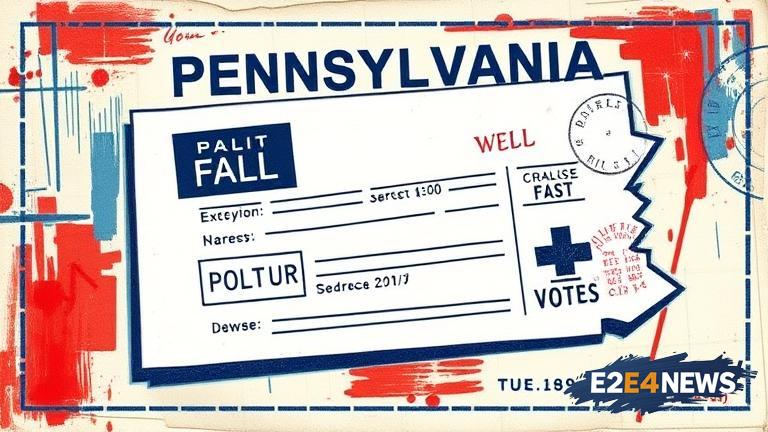In a significant development, a court has intervened in the ongoing dispute over mail ballots in Pennsylvania, ordering the state to cease rejecting ballots due to minor errors in handwritten dates. This decision is expected to have far-reaching implications for the state’s electoral process. The issue at hand revolves around the requirement for voters to include a handwritten date on their mail ballot envelopes. Previously, ballots with incorrect or missing dates were being rejected, leading to concerns about voter disenfranchisement. The court’s ruling aims to address these concerns and ensure that all eligible votes are counted. The dispute has been ongoing, with various groups advocating for the rights of voters whose ballots were being rejected. The court’s decision is seen as a major victory for these groups, who argue that the rejection of ballots over minor technicalities is unfair and undermines the democratic process. Pennsylvania has been at the forefront of debates over voting rights and election integrity. The state’s election laws have been subject to numerous challenges and changes in recent years, reflecting the evolving landscape of electoral politics. The court’s ruling is likely to set a precedent for how similar disputes are handled in the future. It also highlights the importance of ensuring that voting systems are fair, accessible, and transparent. The impact of this decision will be closely watched, particularly in light of upcoming elections. Voters and advocacy groups alike are hailing the decision as a significant step forward in protecting voting rights. However, some have expressed concerns about the potential for voter fraud, arguing that relaxing the rules around mail ballots could compromise election integrity. These concerns are not unique to Pennsylvania and reflect broader debates about the balance between voter access and election security. Despite these concerns, the court’s ruling is widely seen as a positive development, ensuring that more voices are heard in the democratic process. The decision also underscores the critical role that courts play in interpreting election laws and protecting the rights of voters. As Pennsylvania moves forward, it will be important to monitor how this decision affects voter turnout and election outcomes. The state’s experience could also inform discussions about election reform at the national level. In conclusion, the court’s order to Pennsylvania to stop rejecting mail ballots over handwritten dates is a significant development in the ongoing effort to protect and expand voting rights. This decision reflects a broader commitment to ensuring that all eligible voters can participate in the democratic process, free from unnecessary barriers or obstacles. By addressing the issue of mail ballot rejections, Pennsylvania is taking an important step towards enhancing the integrity and inclusivity of its elections. The implications of this decision will be far-reaching, influencing not only the state’s electoral landscape but also contributing to national conversations about voting rights and election reform. Ultimately, the protection of voting rights is fundamental to the health of democracy, and decisions like this one play a crucial role in upholding this principle. The ongoing debate over voting rights in Pennsylvania and beyond is a reminder of the importance of vigilance and advocacy in protecting these fundamental rights. As the electoral landscape continues to evolve, it is essential that efforts to expand voting access and ensure election integrity remain a priority. By doing so, we can work towards a more inclusive and representative democracy, where every voice has the opportunity to be heard.




